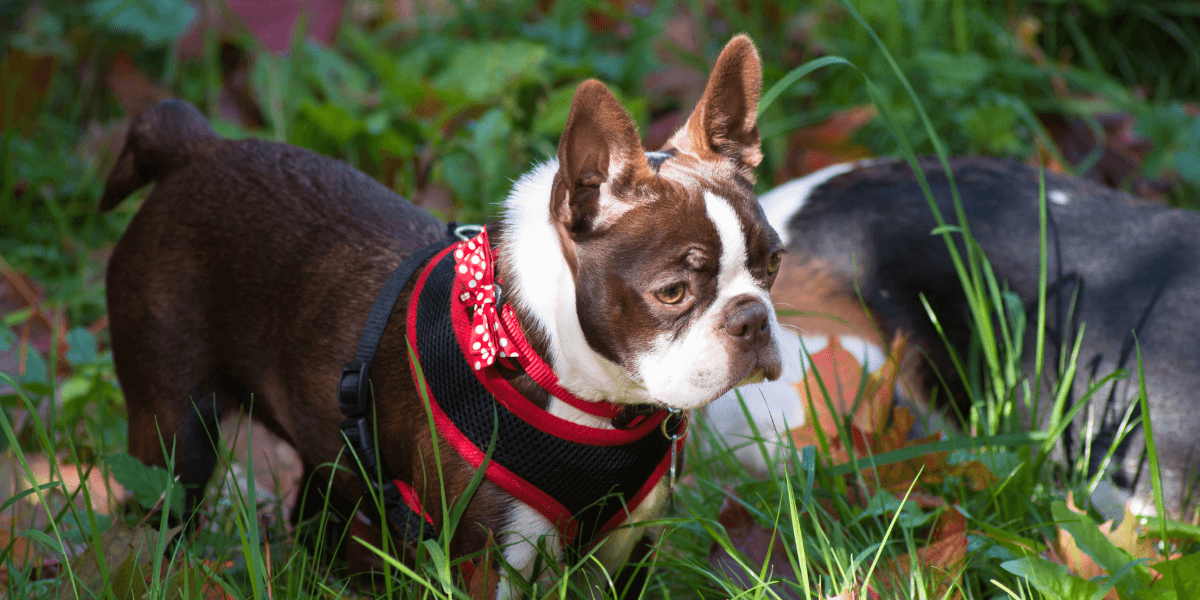Introduction
Understanding the Top 10 Health Concerns for Boston Terrier is crucial for prevention.
- Early identification can significantly improve treatment outcomes and quality of life
- Regular vet check-ups are essential to monitor and manage these health issues effectively
- Knowing the signs and symptoms helps in timely intervention and care
- Proper diet and exercise play a key role in maintaining your Boston Terrier’s health
- Educating yourself on these concerns ensures a happy, healthy life for your furry friend
1. Brachycephalic Airway Syndrome
Boston Terriers are a brachycephalic breed, meaning they have a short, flat face.
- Symptoms: Snoring, labored breathing, and heat intolerance
-
Prevention and Care:
- Weight Management: Keep your dog at a healthy weight to reduce strain
- Avoid Heat: Prevent overheating by avoiding exercise during hot weather
- Surgery: In severe cases, surgery may be necessary to improve airflow
2. Patellar Luxation
This condition is common in small dog breeds like the Boston Terrier.
- Symptoms: Limping, skipping steps, or holding the leg up
-
Prevention and Care:
- Regular Exercise: Keep your Boston Terrier’s muscles strong with regular
- Weight Control: Maintaining a healthy weight reduces stress on the joints
- Surgery: Severe cases may require surgery to realign the kneecap
3. Cataracts
Boston Terriers are prone to developing cataracts.
- Symptoms: Cloudy eyes, clumsiness, or bumping into objects
-
Prevention and Care:
- Regular Eye Exams: Schedule regular check-ups with your vet
- Good Nutrition: Feed a balanced diet rich in antioxidants to support eye health
- Surgery: In advanced cases, cataract surgery can restore vision
4. Deafness
It can be either congenital (present from birth) or acquired later in life.
- Symptoms: Unresponsive to sounds, difficulty waking up, or excessive barking
-
Prevention and Care:
- Hearing Tests: Have your puppy’s hearing tested early to detect congenital deafness
- Training: Use hand signals and other visual cues to communicate with your dog
- Routine Checks: Monitor your Boston Terrier’s hearing regularly
Learn about common health issues in Great Danes to better understand your Boston Terrier's well-being.
5. Allergies
These can cause significant discomfort and affect their quality of life.
- Symptoms: Itching, red skin, ear infections, or gastrointestinal issues
-
Prevention and Care:
- Identify Triggers: Work with your vet to identify and eliminate allergy triggers
- Diet: Feed a hypoallergenic diet if your dog has food allergies
- Medications: Antihistamines, steroids may be necessary to manage symptoms
- Regular Baths: Regular grooming and baths with hypoallergenic shampoos
6. Heart Disease
This condition affects the valve between the left atrium and ventricle of the heart.
- Symptoms: Coughing, difficulty breathing, lethargy, or fainting
-
Prevention and Care:
- Regular Vet Visits: Early detection through regular check-ups
- Healthy Diet: Feed a heart-healthy diet low in sodium and rich in nutrients
- Medications: Your vet may prescribe medications to manage heart disease
Explore top foods and supplements for Great Danes to enhance your Boston Terrier's heart health.
7. Skin Issues
Boston Terriers have sensitive skin and are prone to various dermatological problems.
- Symptoms: Red, itchy skin, hair loss, or sores
-
Prevention and Care:
- Grooming: Regular grooming helps prevent skin problems by removing dirt
- Diet: Ensure your Boston Terrier’s diet includes essential fatty acids
- Vet Care: Seek veterinary advice at the first sign of skin issues to prevent complication
8. Gastrointestinal Issues
Boston Terriers can suffer from a range of gastrointestinal issues.
- Symptoms: Diarrhea, vomiting, abdominal pain, or excessive gas
-
Prevention and Care:
- Diet: Feed a high-quality, easily digestible diet tailored to your dog’s needs
- Portion Control: Avoid overfeeding and limit treats to prevent obesity
- Regular Vet Visits: Regular check-ups can help detect and manage gastrointestinal issues
Discover a vet's guide on the healthiest diet for German Shepherds to support your Boston Terrier's digestion.
9. Hip Dysplasia
Hip dysplasia can still affect these dogs, leading to joint pain and mobility issues.
- Symptoms: Stiffness, limping, or reluctance to move
-
Prevention and Care:
- Exercise: Provide regular, low-impact exercise to strengthen muscles
- Weight Management: Keep your dog at a healthy weight to reduce strain on the hips
- Supplements: Glucosamine and chondroitin supplements can help support joint health
- Surgery: In severe cases, surgery may be required to correct the condition
10. Reverse Sneezing
Reverse sneezing is a common condition in Boston Terriers.
- Symptoms: Snorting, gagging, or rapid inhalation
-
Prevention and Care:
- Calm Your Dog: Gently massage your dog’s throat or cover their nostrils for a few seconds
- Identify Triggers: Identifying and avoiding these triggers can reduce episodes
- Vet Consultation: While usually harmless should be discussed with your vet
FAQs
1. What are common Health Concerns for Boston Terriers?
- Common issues include respiratory problems and eye conditions
2. How can I prevent health concerns for Boston Terriers?
- Regular vet check-ups and a balanced diet are key for prevention
3. Are Boston Terriers prone to allergies?
- Yes, they can have allergies to food or environmental factors
4. How often should Boston Terriers exercise?
- They need daily exercise to stay healthy and fit
5. What signs indicate a Boston Terrier has respiratory issues?
- Look for wheezing, coughing, or difficulty breathing
6. How can I care for a Boston Terrier’s eyes?
- Regular cleaning and checking for signs of irritation or infection
7. Why is regular vet care important for Boston Terriers?
- It helps detect and manage health concerns for Boston Terriers early
Conclusion
- Addressing the Health Concerns of Boston Terrier can prevent serious issues
- Regular vet visits and a healthy lifestyle are key to managing these concerns
- Early detection and prompt care are essential for your Boston Terrier’s well-being
- Educate yourself on symptoms and preventative measures to ensure a long, happy life
- Stay proactive and informed to effectively tackle these health challenges
Don’t forget to share this post with fellow Boston Terrier owners!
References
For more information on Health Concerns for Boston Terrier, check:
- What are the best treatments for dog hip and joint pain?
- The Best Joint Supplements for Dogs with Hip and Joint Pain
- Boston Terriers Medical Problems
- 13 Boston Terrier Health Issues to Look Out For
- All About Boston Terriers
By staying informed, you can give your Boston Terrier the best life possible!
Thank you!













